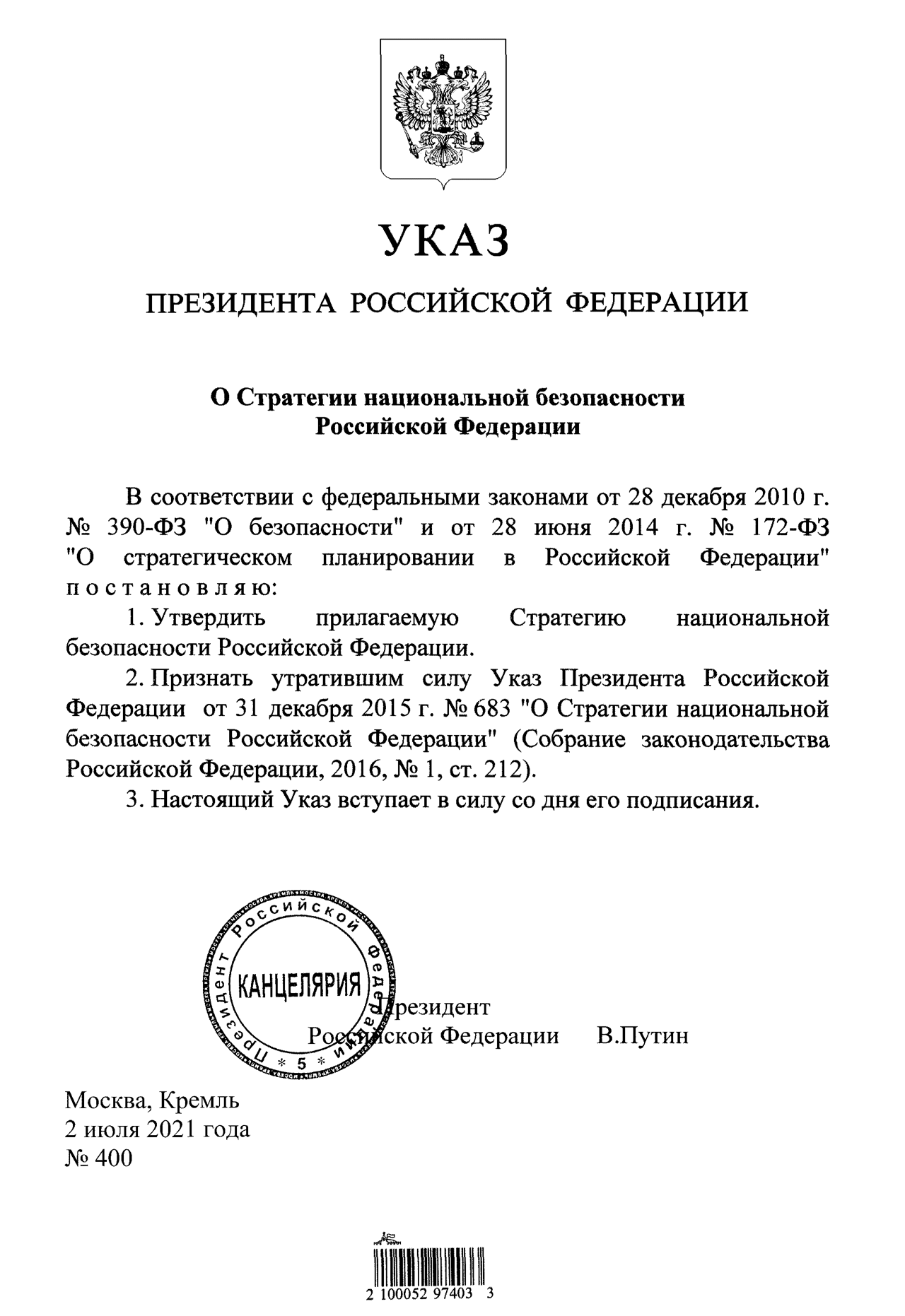The Timeline to the War in Ukraine: 2022: July 2021
In July 2021, Putin and his Administration made their position with regard to the West and Ukraine very clear.
The Russians were on a permanent war footing with the West, understood as cultural and political permanent conflict, and Ukraine and Belarus were part of the unified Slavic empire.
While this did not mean that a full scale invasion of Ukraine was to be projected from this, the end of any compromise with the West on values, and shaping a global way ahead was clearly not in the cards.
The first clear manifestation of this was the publication of the new Russian military doctrine on July 2, 2021.
If one reads through the document in Russian, it is not the clearest of statements about the operational approach of the Russian forces, but it is a clear statement of the superiority of Russian values and way of life and how those values and way of life are under brutal attack by Western multinationals and states.
It is about conflict with the entire Western system, not just states which is described in some detail throughout the document.
The document is a clear statement that Russia and the West are engaged in conflict and that it was a new era.
The fact that this was issued in the midst of the global pandemic is no surprise, for the authoritarian powers are launching their global altering agendas in a world still reeling from how to recover from a global pandemic that in any case originated from China.
But these dots seem to still baffle Western leaders.
In comparison with the 2015 national security strategy document, this one is a call to return to traditional Russian values which are morally superior to a decaying West (after all they can not even know the difference between men and women, a frequent point which Putin underscores in what he characterizes as the morally decaying West) and growing confrontation with the Western governments, economy and cultural and information institutions, within which the unbridled power of multinational information firms is a key threat.
And after reading the document carefully, I asked around among Western decision makers and their support systems whether folks had read this documents, something that would have been mandatory when I was in the government in the early 1980s, and the answer was usually what document do you mean?
Well if that seems too obscure for you, try reading through Putin’s very clear statement on the future of Ukraine, Belarus and Russia as part of bistoric Rus.
Not quite liebestraum for the Russians, but no far off.
In his July 2021 essay (nothing more dangerous than leaders telling us what history inevitably means with the world as their classroom) on “the historical unity of Russians and Ukrainians,” the visionary Russian leader tells us:
“Russians, Ukrainians, and Belarusians are all descendants of Ancient Rus, which was the largest state in Europe. Slavic and other tribes across the vast territory – from Ladoga, Novgorod, and Pskov to Kiev and Chernigov – were bound together by one language (which we now refer to as Old Russian), economic ties, the rule of the princes of the Rurik dynasty, and – after the baptism of Rus – the Orthodox faith. The spiritual choice made by St. Vladimir, who was both Prince of Novgorod and Grand Prince of Kiev, still largely determines our affinity today.
“The throne of Kiev held a dominant position in Ancient Rus. This had been the custom since the late 9th century. The Tale of Bygone Years captured for posterity the words of Oleg the Prophet about Kiev, ”Let it be the mother of all Russian cities.“
I think you get the point but the essay goes on
“I recall that long ago, well before 2014, the U.S. and EU countries systematically and consistently pushed Ukraine to curtail and limit economic cooperation with Russia. We, as the largest trade and economic partner of Ukraine, suggested discussing the emerging problems in the Ukraine-Russia-EU format. But every time we were told that Russia had nothing to do with it and that the issue concerned only the EU and Ukraine. De facto Western countries rejected Russia’s repeated calls for dialogue.
“Step by step, Ukraine was dragged into a dangerous geopolitical game aimed at turning Ukraine into a barrier between Europe and Russia, a springboard against Russia. Inevitably, there came a time when the concept of ”Ukraine is not Russia“ was no longer an option. There was a need for the ”anti-Russia“ concept which we will never accept.”
I think the July national strategy document and Putin’s historical essay should have sent signifiant alarm bells in the West, but what happened in August was an actual war in the Black Sea as the authoritarians play it although not to the West.

